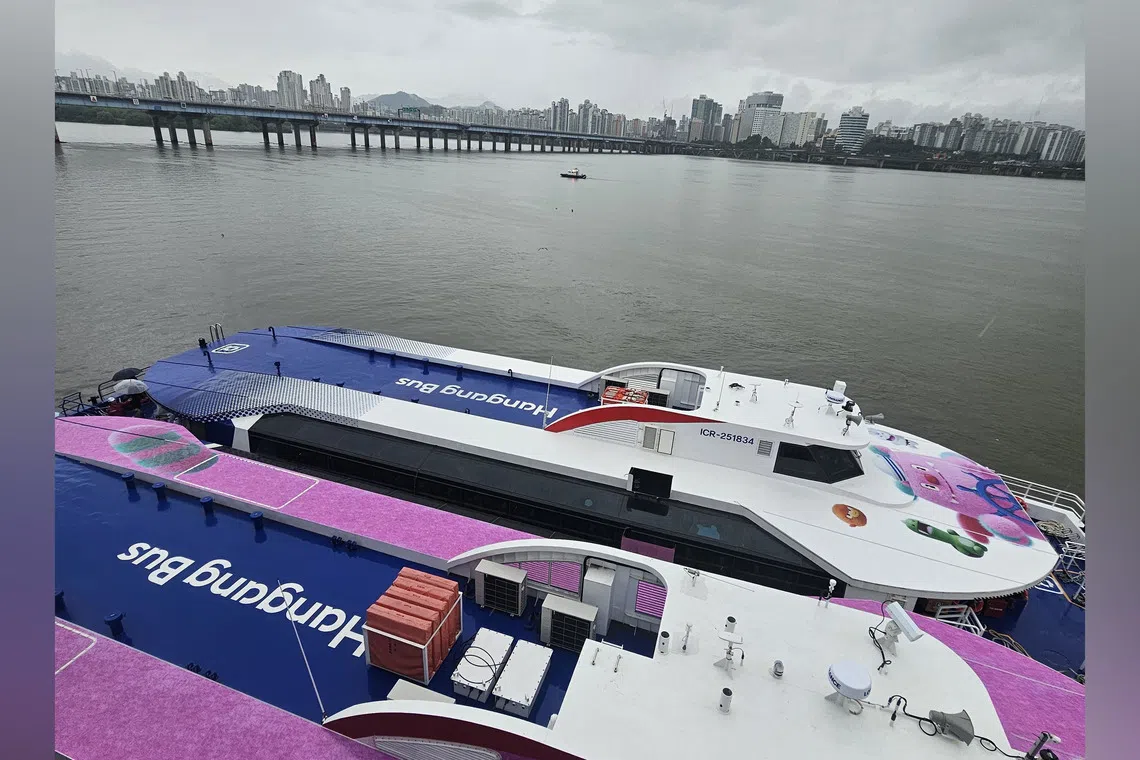Seoul to halt water bus services after malfunctions, switching to trial runs before reopening
Sign up now: Get ST's newsletters delivered to your inbox

Several disruptions had been reported since the launch of Hangang Bus, including an electrical system fault on Sept 22 and a rudder malfunction on Sept 26.
PHOTO: EPA
Follow topic:
SEOUL – South Korea’s capital city will suspend passenger services on its new waterborne public transportation system
The Seoul Metropolitan Government announced Sept 28 that the Hangang Bus water transport service will switch to trial runs from Sept 29 until at least the end of October, aiming to enhance stability and safety for its passengers.
Throughout the trial period, buses will run according to their timetables, but without passengers on board.
Billed as South Korea’s first eco-friendly waterborne transportation system, Hangang Bus began official operations on Sept 18.
However, several disruptions have already been reported since the launch, including an electrical system fault on Sept 22 and a rudder malfunction on Sept 26 that forced an abrupt halt in operations.
“The recent issues were minor technical and electrical errors that can occur during the optimisation stage,” the city government said through its official statement on Sept 28.
“Although each issue was immediately resolved, we believe passenger safety must come first. We therefore decided to conduct extended trial operations under real conditions to ensure safe and stable services for (Hangang Bus) passengers.”
The city government added that the trial period will be used to collect further operational data, improve vessel performance and refine contingency strategies for adverse weather and other emergency scenarios.
Plans also include fine-tuning vessel components, integrating mechanical and electrical systems, and bolstering crew training and maintenance capacity in collaboration with the engineers behind the vessels.
For those who had already purchased monthly passes, the city government said a refund of 5,000 won (S$4.60) will be issued. Further instructions regarding the refund process will be provided via the T-money website and its mobile application, as well as individual text messages.
Once trial operations conclude, the city aims to add additional hybrid and electric vessels to reduce the interval periods between river buses and expand operating hours.
While eight Hangang Bus vessels began operating 14 times daily at intervals of about one to 1½ hours from Magok in western Seoul to Jamsil in southern Seoul, the city government had initially planned to add four more boats by the end of 2025. This was to increase the number of trips to 48 times daily at shorter intervals of 30 minutes to one hour. THE KOREA HERALD/ASIA NEWS NETWORK

